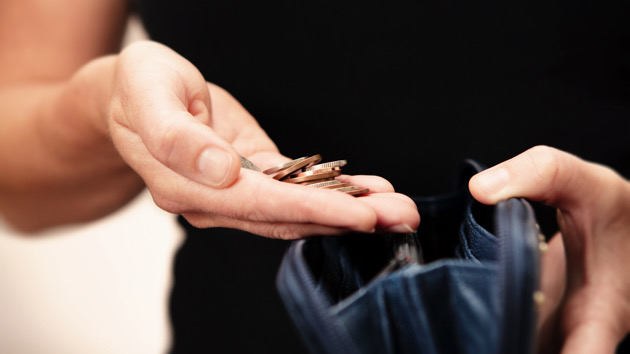(NEW YORK) — Nearly a third of Americans say they’re not prepared for a recession and they aren’t taking action to get their finances ready for one, according to a recent Bankrate poll.
Experts are calling it “recession fatigue” and it might be why younger generations in particular are failing to take active steps to weather an economic downturn.
“Recession depression, recession fatigue — whatever you want to call it, the hits to Americans’ financial security keep on coming, first with the devastating coronavirus pandemic, followed by 40-year-high inflation and now the growing risk of another downturn,” said Bankrate.com analyst Sarah Foster. “Sustaining motivation for two-plus years to prepare for tough economic times can no doubt feel exhausting.”
Bankrate’s poll found 40% of Gen Z (ages 18-25) say they aren’t prepared for a recession and aren’t taking any steps to get their finances in order. That compares with 31% of unprepared millennials (ages 26-41), 30% of Gen X (ages 42-57) and 27% of baby boomers (ages 58-76).
Gen Zers also say the pandemic interrupted their formative years and feel slighted that major life events, like proms and high school and college graduations, had to be canceled.
“Recession fatigue is the awkward cousin of revenge spending,” Foster said. “Americans were deprived of so many activities that brought them joy. It’s kind of like financial apathy.”
Experts say some Americans may not be preparing for a recession because they simply don’t know how. Many have never experienced an environment of high inflation and rising interest rates. For many Gen Zers, the closest they’ve come to a severe economic downturn is seeing how the Great Recession of 2007-2009 affected their parents.
Federal Reserve Chairman Jerome Powell recently warned that the central bank’s aggressive interest rate hikes to combat stubbornly high inflation may cause “some pain,” including a rise in the unemployment rate.
A growing number of Americans now believe the Fed will not be able to achieve a “soft landing,” or bringing prices under control without tipping the economy into recession. According to a recent survey from MassMutual, 49% of respondents said they think there will likely be a recession next year. Experts seem to agree. A survey from the audit, tax and advisory firm Grant Thornton finds 72% of CFOs think the Fed’s rate hikes will spark a recession.
While the best time to prepare for a recession is often before it even begins, it’s never too late to get your financial house in order.
Start by identifying unnecessary spending and decide where you can cut back. Consider cutting subscriptions for monthly magazines or streaming services, eat out less or stop ordering food delivery.
Put the money you’re saving into an emergency fund. As a general rule of thumb, try to have at least three to six months of expenses set aside in case of a job loss or unexpected medical expense.
Once you have your emergency fund, prioritize paying down your debt, especially balances on high interest credit cards.
The Fed’s rate hikes are pushing the cost of unpaid balances even higher. Over the past six months, the average annual percentage rate on a credit card has jumped from 16.17% to 16.65%, closing in on a record high of 17.14% in 2019, according to the Fed.
If you’re carrying balances on multiple credit cards and you have good credit, consider consolidating them into a 0% interest rate transfer card or consider taking out a lower interest personal loan to pay off your higher interest credit card debt.
Finally, find a side hustle you enjoy. That doesn’t necessarily mean taking on a second job. It could mean turning your hobby, like jewelry making or photography, into an extra revenue maker.
Copyright © 2022, ABC Audio. All rights reserved.







